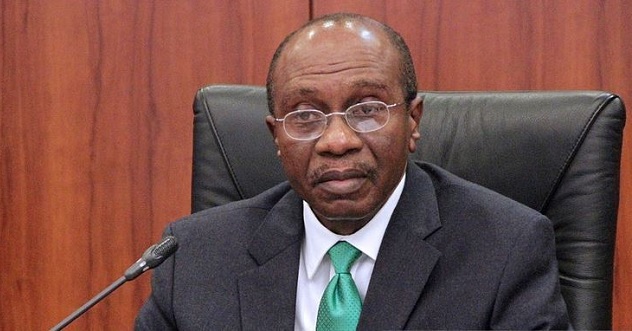Business
Nigerian govt’s debt hits N24.52tn –CBN

The total debt of the Nigerian government (not including states and the Federal Capital Territory) came to N24.52 trillion at the end of March, the Central Bank of Nigeria (CBN) said in its ‘Economy Monthly Report’ for May issued on Tuesday.
It further stated that the Nigerian government posted a revenue shortfall of N561.71 billion in the month in question.
“Federation account operations driven by the slump in crude oil prices in March 2020, federally collected revenue in May 2020 declined by 31.6 per cent and 12.0 per cent to N625.91bn, relative to its levels in April 2020 and May 2019 respectively. The receipt was 52.4 per cent below the monthly benchmark.
“Retained revenue of the Federal Government in May was N276.99bn, while total expenditure was N838.71bn, resulting in an estimated deficit of N561.71bn.
“Total FGN debt outstanding at end-March 2020, stood at N24.52tn, 59.3 per cent of which was domestic and 40.7 per cent external,” the report said.
Gross federally generated revenue was negatively impacted by downtrend in economic activities despite the gradual relaxation of the coronavirus-induced lockdown in May, the CBN noted.
Read also: Household loans increased in second quarter –CBN
It similarly observed that oil revenue dropped below the benchmark in April by reason of a steep fall in the price of Bonny Light crude (Nigeria’s premium oil grade) to $33.01 per barrel in March from $55.66 the month before.
Revenue collected by the Nigerian government in May summed up to N625.91 billion. It fell 52.4% short of monthly benchmark estimate of N1.31 trillion and was 31.6% lower than the actual receipt of N915.28 billion recorded in April.
Consequently, the slide in revenue collection reduced the revenue available to the three tiers of government in May.
“Thus, the net sum allocated was N584.45bn (after statutory deductions and transfers) compared with N620.52bn shared in April,” the report added.
It disclosed that a majority of sub-national governments generated minimal incomes, making them vulnerable to volatility in federally collected revenue.
It warned that the evolving fiscal crisis might not cease any moment soon at the federal and sub-national levels.
Allocations to states and local governments were lower than their benchmarks by 46.6% and 39.8% respectively while also falling below the levels witnessed in the previous month.
Join the conversation
Support Ripples Nigeria, hold up solutions journalism
Balanced, fearless journalism driven by data comes at huge financial costs.
As a media platform, we hold leadership accountable and will not trade the right to press freedom and free speech for a piece of cake.
If you like what we do, and are ready to uphold solutions journalism, kindly donate to the Ripples Nigeria cause.
Your support would help to ensure that citizens and institutions continue to have free access to credible and reliable information for societal development.






















